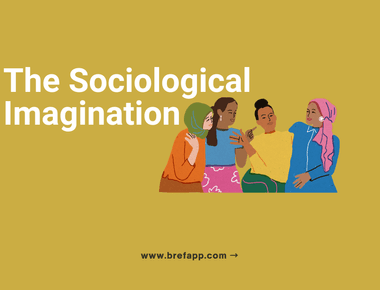
The Protestant Ethic and the Spirit of Capitalism: A Summary of Max Weber's Work

Max Weber was a German sociologist, philosopher, and political economist who lived from 1864 to 1920. He is widely regarded as one of the founders of modern sociology and is known for his influential works on social theory, religion, and economics. One of his most famous works is “The Protestant Ethic and the Spirit of Capitalism”, published in 1905.
The purpose of this article is to provide a summary of Weber’s ideas in “The Protestant Ethic and the Spirit of Capitalism”. Readers can expect to learn about the Protestant Ethic and its influence on the development of capitalism, the Spirit of Capitalism and its relationship with the Protestant Ethic, Weber’s analysis and key themes, as well as critiques and relevance of his work today.
The Protestant Ethics
The Protestant Ethic refers to a set of values and beliefs that emerged during the Protestant Reformation in the 16th century. According to Weber, these values were based on the teachings of Protestantism, particularly the Calvinist doctrine of predestination, which held that God has already determined who will be saved and who will not.
Weber argued that this led to a new understanding of work, where labor was seen not just as a means of survival but also as a form of worship. Hard work, discipline, and frugality became virtues that were valued not only for their material benefits but also as a means of demonstrating one’s devotion to God. This attitude towards work and wealth, according to Weber, paved the way for the rise of capitalism in Western societies.
Religion played a crucial role in shaping attitudes towards work, wealth, and success. Protestants believed that material success was a sign of God’s favor and that one’s economic position reflected their moral character. This created a culture of striving for success and accumulating wealth, which fueled the development of capitalism.
The Protestant Ethic was manifested in different countries and contexts in various ways. For example, Weber pointed to the influence of Puritanism in England and the Netherlands, where the pursuit of wealth was seen as a means of glorifying God. In America, the Protestant work ethic was a central component of the country’s founding values and played a significant role in the development of American capitalism. In Germany, Weber argued that the Protestant Ethic helped lay the foundations for the country’s economic and industrial success in the 19th century.
The Spirit of Capitalism
The Spirit of Capitalism, as defined by Weber, refers to the set of values, attitudes, and behaviors that are associated with the capitalist system. These include a focus on profit, efficiency, and rationality, as well as a belief in the power of technology and the importance of competition.
According to Weber, the Spirit of Capitalism was closely linked to the Protestant Ethic. The values and beliefs of the Protestant Ethic created a cultural environment that was conducive to the development of capitalism. Protestantism encouraged a disciplined and rational approach to work and wealth, which helped to create the conditions necessary for capitalist enterprise to thrive.
Capitalism emerged as a dominant economic system in Western societies during the Industrial Revolution of the 18th and 19th centuries. This period saw the rise of new technologies, such as steam power and the spinning jenny, which allowed for the mass production of goods. Capitalism, with its emphasis on efficiency and profit, was well-suited to this new economic landscape and helped to fuel further innovation and growth.
However, Weber also offered a critique of the negative consequences of capitalism. He argued that capitalism had led to the loss of meaning and purpose in people’s lives, as traditional values and social structures were replaced by the pursuit of profit. Moreover, Weber observed that capitalism was characterized by a growing bureaucracy, which he saw as a threat to individual freedom and creativity.
Weber’s analysis of the Spirit of Capitalism and its relationship with the Protestant Ethic provides a framework for understanding the historical and cultural roots of capitalism. At the same time, his critique of capitalism highlights the need to consider the social and ethical implications of economic systems in our own time.
Weber’s Analysis and Key Themes
Weber’s analysis of the relationship between religion and economics was based on his interpretive approach to social science. Rather than seeking to establish universal laws or causal relationships, Weber focused on understanding the subjective meanings that people attached to their actions and beliefs. He believed that culture, institutions, and historical context all played a crucial role in shaping economic behavior.
Weber’s methodology involved using a combination of historical analysis and sociological theory to understand the complex interactions between religion and economics. He studied the writings of theologians, economists, and other scholars to identify the key ideas and values that underpinned the Protestant Ethic and the Spirit of Capitalism. At the same time, he conducted empirical research to explore how these ideas were manifested in different social and economic contexts.
One of the key themes of Weber’s work is the importance of culture in shaping economic behavior. He argued that cultural beliefs and values, such as the Protestant Ethic, played a crucial role in creating the conditions necessary for capitalism to emerge and thrive. Moreover, he emphasized that culture was not a static entity but rather was constantly evolving in response to historical and social changes.
Another important theme of Weber’s work is the role of institutions in shaping economic behavior. Weber identified a range of institutional factors, such as the legal system and bureaucratic structures, that had an impact on economic activity. He argued that these institutions could both facilitate and constrain economic growth, depending on their design and implementation.
Weber emphasized the importance of understanding the subjective meanings that people attach to their actions and beliefs. He believed that economic behavior was not simply a matter of rational calculation but was also shaped by cultural and emotional factors. By exploring the subjective experiences of individuals and groups, Weber sought to uncover the complex and dynamic nature of economic behavior.
Reviews and Relevance Today
Weber’s work has been subject to a range of critiques and debates. Some scholars have questioned the extent of the Protestant Ethic’s influence on the development of capitalism, arguing that other factors, such as technological innovation and changes in trade patterns, played a more significant role. Others have criticized Weber’s focus on Protestantism, arguing that he neglected the impact of other religious and cultural traditions on economic behavior.
Despite these critiques, Weber’s ideas remain relevant for understanding contemporary economic and social issues. For example, his emphasis on the cultural and institutional factors that shape economic behavior provides a useful framework for analyzing the impacts of globalization and income inequality. Moreover, his critique of the negative consequences of capitalism, such as the loss of meaning and the rise of bureaucracy, remains a key concern for policymakers and scholars today.
There are several possible implications of Weber’s work for policy and future research. For example, policymakers could use Weber’s insights to design institutions and policies that promote economic growth while minimizing negative social and environmental impacts. Scholars could also build on Weber’s work by exploring the role of culture and institutions in shaping economic behavior in different global contexts, such as China and India.
Weber’s work on the Protestant Ethic and the Spirit of Capitalism remains a landmark contribution to our understanding of the historical and cultural roots of capitalism. While his ideas have been subject to criticism and debate, they continue to offer valuable insights for policymakers and scholars seeking to understand the complex interplay between culture, institutions, and economics.
Final Toughts
Max Weber’s book “The Protestant Ethic and the Spirit of Capitalism” provides a valuable analysis of the relationship between religion, culture, and economic behavior. He argues that the Protestant Ethic played a significant role in shaping the emergence of capitalism and explores the cultural and institutional factors that facilitated its growth. He also critiques the negative consequences of capitalism, such as the loss of meaning and the rise of bureaucracy.
Weber’s work has been subject to critique and debate, but it remains relevant today for understanding contemporary economic and social issues. His emphasis on the role of culture and institutions in shaping economic behavior provides a useful framework for analyzing the impacts of globalization and income inequality. Furthermore, his critique of the negative consequences of capitalism continues to be a key concern for policymakers and scholars.
Weber’s work has had a significant impact on the study of sociology, economics, and history. It has contributed to our understanding of the complex interplay between religion, culture, and economics and has helped shape ongoing debates about the nature and future of capitalism. As such, Weber’s ideas continue to influence research and policy discussions today and will likely do so for years to come.
Tags
Related Posts






Quick Links
Categories
